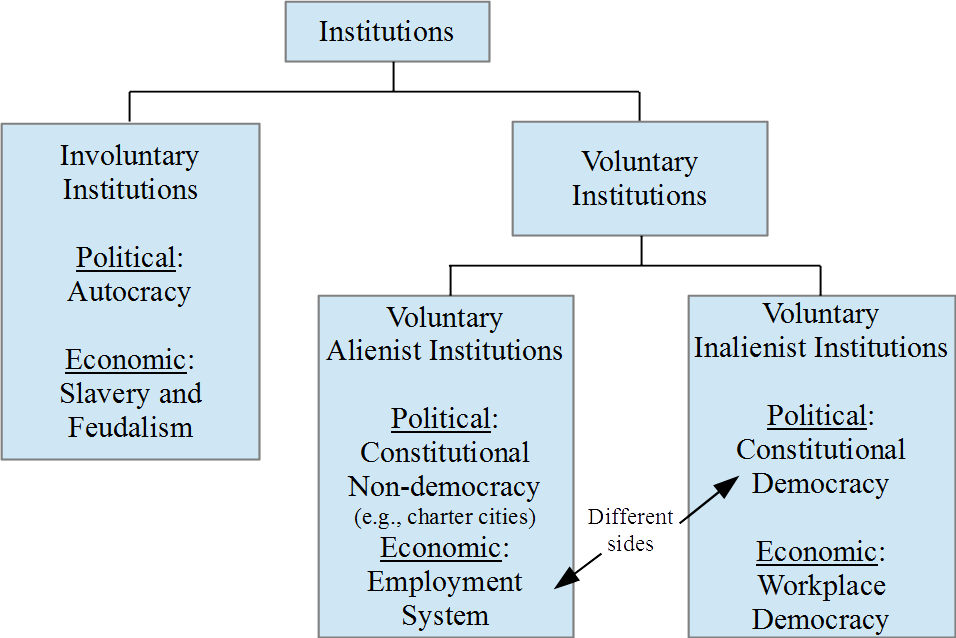 There is a fault line running through classical liberalism as to whether or not democratic self-governance is a necessary part of a liberal social order. The democratic and non-democratic strains of classical liberalism are both present today—particularly in America. Many contemporary libertarians and neo-Austrian economists represent the non-democratic strain. We will take the late James M. Buchanan as a representative of democratic classical liberalism. Unpacking the implications of classical liberalism for any socio-organizational structures requires a tour through the intellectual history of the voluntary slavery contract and the voluntary non-democratic constitution (or pactum subjectionis) and it requires the recovery of the theory of inalienable rights that descends from the Reformation doctrine of the inalienability of conscience through the Enlightenment in the abolitionist and democratic movements. The argument concludes in agreement with Buchanan that the classical liberal endorsement of sovereign individuals acting in the marketplace generalizes to the joint action of individuals as the principals in their own organizations. In economic firms, this means that the members of the company should be the people working in the company delegating management authority to the managers instead of the current system where they, as employees, alienate those governance rights to the employer within the scope of the employment contract.
There is a fault line running through classical liberalism as to whether or not democratic self-governance is a necessary part of a liberal social order. The democratic and non-democratic strains of classical liberalism are both present today—particularly in America. Many contemporary libertarians and neo-Austrian economists represent the non-democratic strain. We will take the late James M. Buchanan as a representative of democratic classical liberalism. Unpacking the implications of classical liberalism for any socio-organizational structures requires a tour through the intellectual history of the voluntary slavery contract and the voluntary non-democratic constitution (or pactum subjectionis) and it requires the recovery of the theory of inalienable rights that descends from the Reformation doctrine of the inalienability of conscience through the Enlightenment in the abolitionist and democratic movements. The argument concludes in agreement with Buchanan that the classical liberal endorsement of sovereign individuals acting in the marketplace generalizes to the joint action of individuals as the principals in their own organizations. In economic firms, this means that the members of the company should be the people working in the company delegating management authority to the managers instead of the current system where they, as employees, alienate those governance rights to the employer within the scope of the employment contract.
Download reprint of the paper from Ethics & Global Politics.